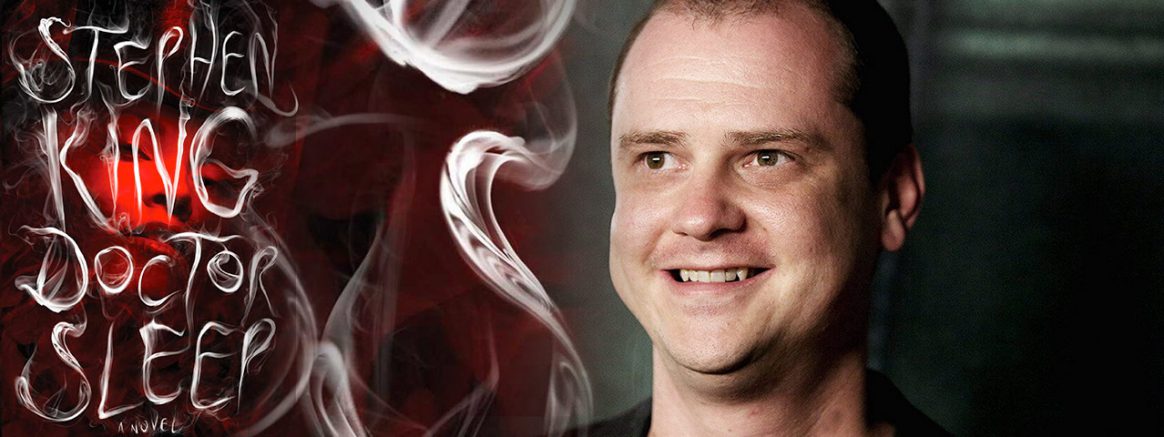
Mike Flanagan is just like you and me.
A longtime fan of Stephen King’s, young Mike was reading It while he was still in elementary school. Born in Salem, Massachusetts in 1978 to Timothy and Laura Flanagan, Mike’s active imagination made horror both terrifying and fascinating to him. As a child, he could often be found playing around with his family’s video camera, making short movies on VHS. He pursued that hobby as he went into high school, where he also became involved in the drama department and the president of the school’s Student Government Association. It was here at Archbishop Spalding High School in Severn, Maryland that he believes he truly became a Constant Reader, devouring every King book he could get his hands on.
Yes, Mike Flanagan is just like you and me. He’s a film buff, loves horror, and has read just about everything Stephen King has ever written. Except, unlike you and me, he has a letter from Stephen King framed on his office wall. The letter is praising him for his adaptation of King’s 1992 novel Gerald’s Game, a work previously believed by the masses to be un-adaptable. Flanagan also received high praise from King for his Netflix horror-drama, The Haunting of Hill House, as the author took to his Twitter account to proclaim the 10-part series, “a work of genius.” Next year, we’ll see his take on Doctor Sleep, the sequel to one of King’s most famous works, The Shining.
Just like you and me. Except Mike Flanagan is a creative genius who has written and directed some of the best horror to come out of the last three years. Thankfully, he took some time out of his busy schedule to talk with me about his history as a Constant Reader, his love of literature, and his incredible work in the motion picture industry.
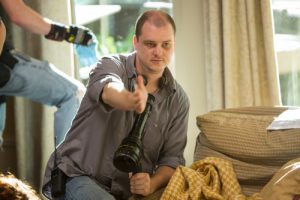
JS: With your film adaptation of Gerald’s Game already being hailed as a favorite among Stephen King fans and Doctor Sleep on the way, it’s easy to see you’re a Constant Reader! What was your introduction to King and what are some of your personal favorite novels by him?
MF: The first King novel I remember reading was It, and I was in fifth grade. It absolutely traumatized me. I was generally a very scared kid. I couldn’t watch horror movies at all. I hid behind the couch the first time I saw Michael Jackson’s “Thriller” video. I had grown up reading John Bellairs and Christopher Pike, and I found It at the library and gave it a shot, thinking it wouldn’t be as traumatic as a scary movie. I was dead wrong and it opened up a door that changed my life. I started powering down his library, and I’d say I was a true Constant Reader by the time I was in High School. I have a lot of favorites, and of course the staples: The Stand, The Shining, Salem’s Lot, The Green Mile. But some of my true favorites are Lisey’s Story, Hearts in Atlantis, Misery, Dolores Claiborne, The Wind Through the Keyhole, and, of course, Gerald’s Game.
JS: What do you think it is about King as an author that makes his works so perfectly adaptable?
MF: I actually think he’s extraordinarily difficult to adapt! There’s a unique experience he creates in his readers, this sense of falling into the story that you’re reading. His best work pulls you through it with such an immersive momentum that it’s possible to forget you’re reading a book. It’s an eclipsing sensation that I don’t find with other authors. His attention to character development, to humanity, and to narrative structure are some of his most defining traits, and those are very difficult to translate into a medium that tends to jettison those kinds of nuances in favor of shock, blood, and scares. Too many of his adaptations stray too far from what makes his work so special, and they suffer for it. But at the heart of his work is a conversation about the human condition, about flawed people in extraordinary situations, and about the darker corners of our nature. If THAT is the focus, as opposed to just the “horror stuff,” his work really sings on the screen. But it’s quite a challenge to protect that.
JS: When did you first read Gerald’s Game and what was your immediate reaction to it?
MF: I was in college when I read it, and I was floored. I completely lost track of time and space while I read it the first time. I wouldn’t be surprised if I forgot to breathe. I put it down, and I exhaled, and I was stunned. My first reaction was that it was unfilmmable. It was too intimate, too contained, too ambitious. It was immediately one of my favorite King books, but I would joke that it’s the only one of his works that could never, ever be made into a movie. And I spent the next half of my life thinking about ways to adapt it. I carried it around for years and years, trying to envision what the film version could look like. Trevor Macy, who had produced Oculus and would become my producing partner, thought it had merit at a time when no one else would touch it. It would take almost twenty years before the film was made, and to say it was a dream come true for me is an understatement. That was the project I’d talk about long before I ever had a toe-hold in the industry, and I never for a moment thought I’d actually be the one to make that film. Gerald’s Game will always hold a remarkably special part of my heart. It was my Everest.
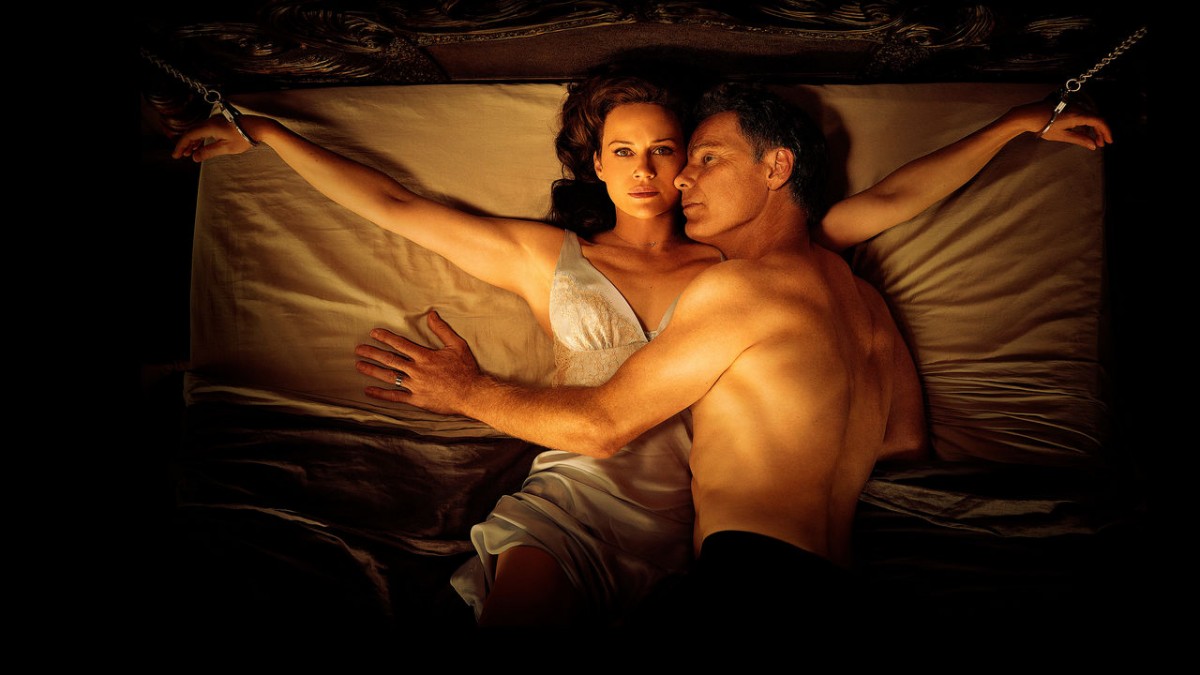
JS: Carla Gugino has called Gerald’s Game both the “most difficult” and the “most fulfilling” shoot she has ever done. Can you speak to what it was like working with her as an actress, and how you helped her bring Jessie Burlingame to life?
MF: Carla is one of the best, bravest, most talented and most valued collaborators of my career. Her descriptions are very accurate as far as the difficulty and the fulfillment of that movie. She came onto the project late (another actress had been cast as Jessie and dropped out at the last minute), and was thrown into the fire. She immediately lifted up the whole enterprise, cast and crew, and what followed was one of the most intense and rewarding collaborations I’ve ever had with an actor. It was true of the whole ensemble. I think Gerald’s Game will always be my favorite cast experience, but particularly with Carla and Bruce; we really made something very special together. It was entirely collaborative, creative, and daunting in the best way. We started that job as strangers and we finished it as family.
JS: When did Stephen King get to see the final product and what was his reaction?
MF: I don’t know if I was ever as nervous as I was sending that first cut to Steve. He was the first person outside of my editorial department who got to see the film, and I was terrified about what he’d think. He was my hero, and this particular movie was a high-wire act without a net. He loved the film, and sent me a long email about his thoughts. I’m not lying when I tell you that I printed it and framed it. It’s still hanging in my office.
JS: Of all the Stephen King novels you could have adapted, Gerald’s Game really did seem almost untouchable. What made you want to do it?
MF: I was always so taken with Jessie. The book was such a deep dive into one of King’s best heroines, and her story was so harrowing and inspiring. That novel was special because it was about so, so much more than what you saw on the surface. I really felt like there wasn’t another story like it out there on film, and that if we executed the movie properly, it would be so unique. That’s hard to come by in this business. I’d often say to Trevor that there were a lot of movies we could make next, but none were as good as Gerald’s Game. At a certain point, he agreed and we tried to get it going. We knew it would be a challenge, but there was something about it that always tugged at me. By the time the movie was finished, I’d been obsessing over it for half my life. I had to get it made.
JS: You clearly enjoy a good challenge! There is a brilliant moment in The Haunting of Hill House in which nearly the entire episode is done in just one or two shots. Whereas many directors – especially that of a TV series – would never think to do such a thing, you do, and it raises the level of artistry of the entire production in the process. Where does that come from, that need to challenge yourself?
MF: I do love a challenge. I have a hard time sitting still I guess. I think a lot of it comes from the years I spent trying to get into this business. Making movies for a living seemed like an impossible dream for most of my life – more like a delusion, if I’m honest. I felt crazier and crazier every year for continuing to pursue this career, and had no shortage of rejection and discouragement along the way. I always felt that if I ever did make it into the industry, if I was ever lucky enough to make movies for my living, I had to give it everything I had. Each movie could be my last and this career could evaporate at any moment, so I better try to empty the chambers, you know? With Haunting, we had an opportunity to try something very ambitious because it was organic to (and supported by) the story we were telling. It wasn’t that we wanted to do long takes; it was that long takes seemed to be the best way to tell that particular chapter of that particular story, and so why not? Who knew if I’d ever be in a situation again when I was responsible for directing an entire season of television? This might be my only time at bat, so might as well swing for the fences.
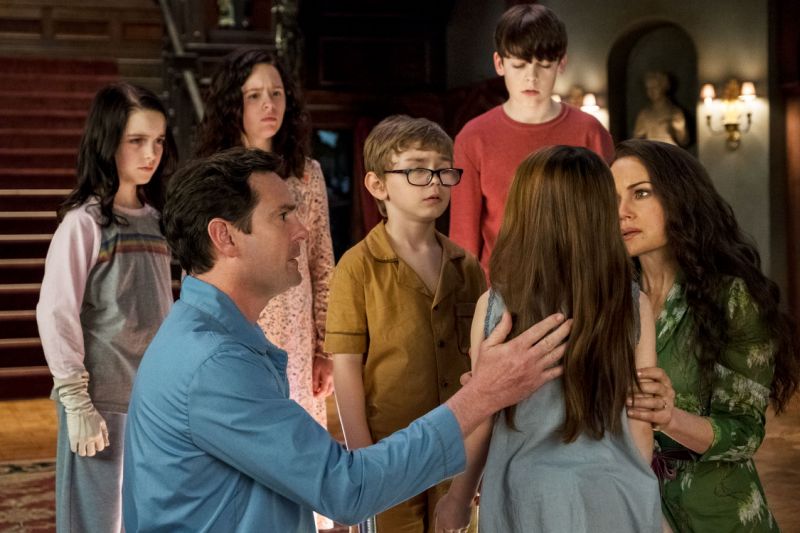
JS: The Haunting of Hill House is, of course, one of Stephen King’s favorite novels as well. Is it safe to say it is one of yours and when were you first introduced to the novel?
MF: Absolutely. I read it young, and it was truly formative. Perfect, in fact. You can really see how it has influenced so many wonderful writers, including King. It became one of my favorites immediately.
JS: The series has been critically acclaimed as an exceptional adaptation of Shirley Jackson’s novel and yet it’s not really a straight adaptation. What made you decide to tell the story in this new way?
MF: I really felt like the straight adaptation had already been done pretty perfectly by Robert Wise in 1963. I didn’t see any upside in trying to repeat that. And expanding the novel to ten hours was going to require a pile of new material anyway, just to fill the season. The novel as written is perfectly suited to a feature film adaptation, and Robert Wise had already done that as well as it could be done. I’ve heard the show described as a “remix” or an “echo” of the source material, and I think that is a fine way to describe what we were doing. I wanted to be faithful to the spirit of the book, as I understood it, and to rearrange the exquisite pieces Jackson created into something new. It was all done with great love and respect for the material, but it is certainly a very different way to “adapt” something.
JS: Who do you look up to, as a director? What films either older or more recent have influenced you the most?
MF: This is a tough question! There are so, so, SO many filmmakers I admire and look up to. I wouldn’t even know how to begin listing them. As I look back at my work, I can see some of the filmmakers and movies that have influenced me the most by the way that influence manifests in my movies. I have to say that The Haunting, The Changeling, The Shining, and The Exorcist all have their fingerprints on things I’ve done. But my favorite movies are Casablanca and Jaws.
JS: I know you can’t probably tell us too much about Doctor Sleep as you’ve just wrapped principle photography. But as a director who we now know loves to challenge himself, what was the most challenging thing about making Doctor Sleep?
MF: I think the biggest challenge of this movie comes from its legacy. Even though Doctor Sleep is its own story, and a direct sequel to King’s novel, it is impossible approach such a project without having to talk about Stanley Kubrick. The words “sequel to The Shining” invoke immediate reactions from Kubrick fans, from King fans, from just about anyone. It’s an impossible place to be. My priority is to adapt the novel Doctor Sleep as best I can, and make the movie I saw in my head when I read the book. But I’m also stepping into a universe and characters that have been depicted in one of the great masterpieces of cinema. Not being lost in that shadow is a challenge in and of itself.
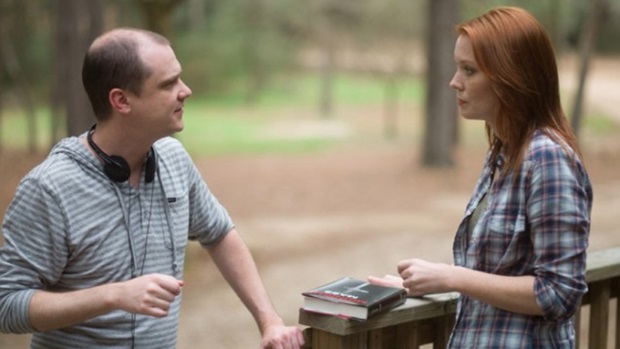
JS: In your 2016 film, Hush, there’s a moment where you see that Maddie owns the novel, Mr. Mercedes. But I saw another book, way in the background on the shelf. It’s a little blurry, but if you squint and tilt your head a bit, you can definitely see it’s there. That book is Doctor Sleep. Was that intentionally placed there by you, and did you know at the time that you would be directing Doctor Sleep?
MF: It was definitely intentional to put it there, but just as a fan. I had no idea that I’d be making the movie, and wouldn’t know that for several more years. Incidentally, in the final episode of The Haunting of Hill House, Steve’s wife Leigh is reading a paperback of Doctor Sleep while he’s typing at his laptop. At that point, I had just learned the movie was green lit.
JS: In a perfect world, if a studio came to you tomorrow and said, “You can pick any book in the world to make a film out of and we’ll give you an unlimited budget,” what book would you choose?
MF: That’s very, very tough… I really wanted to tackle The Dark Tower. Particularly Wizard and Glass, which was my favorite of the books. But there was a time I dreamed of spending a decade making those films. I think that ship has sailed now, but I’ll always think about it. I had a really, really killer version of The Gunslinger in my head. I can still see the opening shot in the desert. Beyond that, I’ve got others on my wish list. Trevor and I have always talked about making Dan Simmons’ Hyperion and Robert McCammon’s Boy’s Life. But if I had all the money in the world and chance to take a shot at The Stand… well, that’d be something.





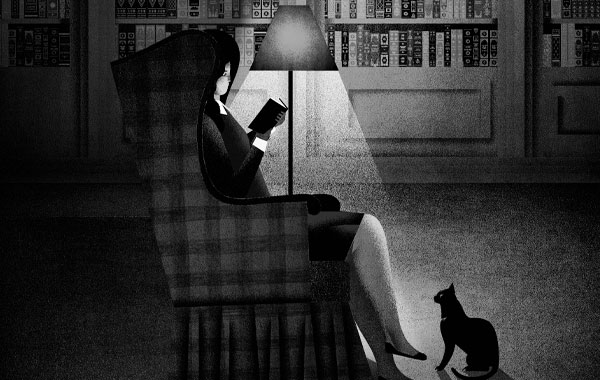


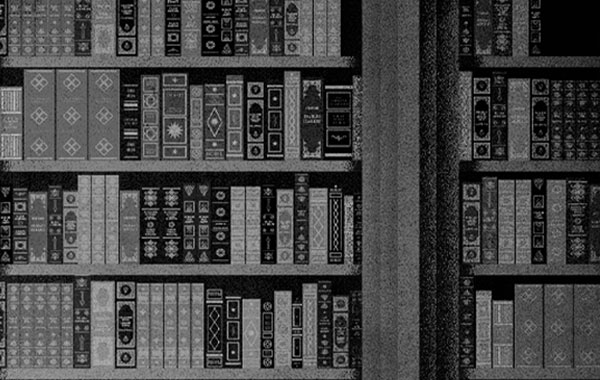

michael doukas
Great interview.
Jason Sechrest
Thank you, Michael! Glad you enjoyed it.
Bryant Burnette
Flanagan has a perfect track record, in my opinion; I’ve enjoyed everything he’s done so far. I can’t wait for “Doctor Sleep.”
One correction: in that photo of him directing “Hush,” that’s not Kate Siegel. That’s Samantha Sloyan.
Jason Sechrest
I think Mike’s going to do a fantastic job with Doctor Sleep. I’m excited to see it. Thanks for the info, Bryant. Correction made!
Lou Sytsma
Another fantastic interview! Thanks Jason!
Can’t wait to see Dr. Sleep!!
David Cowart
I thoroughly enjoyed this insightful interview. I can’t wait to see what he’s done with Doctor Sleep.
Club Stephen King
As well, a very interesting interview. Thanks Jason !